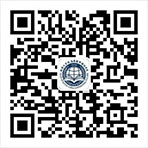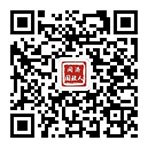
Co-hosted by the Institute for China & World Studies of Tongji University and the Center for Chinese Studies of Dongseo University (DSU), the 4th Shanghai-Busan Cooperation Forum was successfully held in Tongji on November 4, 2019. The forum brought together more than 20 domestic representatives from the Chinese Academy of Social Sciences (CASS), Fudan University, Nankai University, Tongji University, Shandong University, Communication University of China (CUC), Shanghai Normal University, and Shanghai Academy of Social Sciences (SASS), as well as more than 20 South Korean representatives from the Presidential Committee on Northern Economic Cooperation (PCNEC), Dongseo University, Korea Maritime Institute (KMI), Korea Maritime & Ocean University (KMOU), Korea JoongAng Daily, Pusan National University, Pukyong National University, and Busan Economic Promotion Agency. Jiang Bo, Vice President of Tongji University, Ning Fukui, former Chinese Ambassador to South Korea, Shin Jung-seung, former Ambassador of South Korea to China and Director of the Center for Chinese Studies of DSU, and Choi Young-sam, Consul-General of the Consulate General of the ROK in Shanghai, attended the forum. Consul-General Choi delivered an ebullient speech at a banquet hosted by the Consulate General of the ROK in Shanghai for the participants from China and South Korea on the evening of November 3.
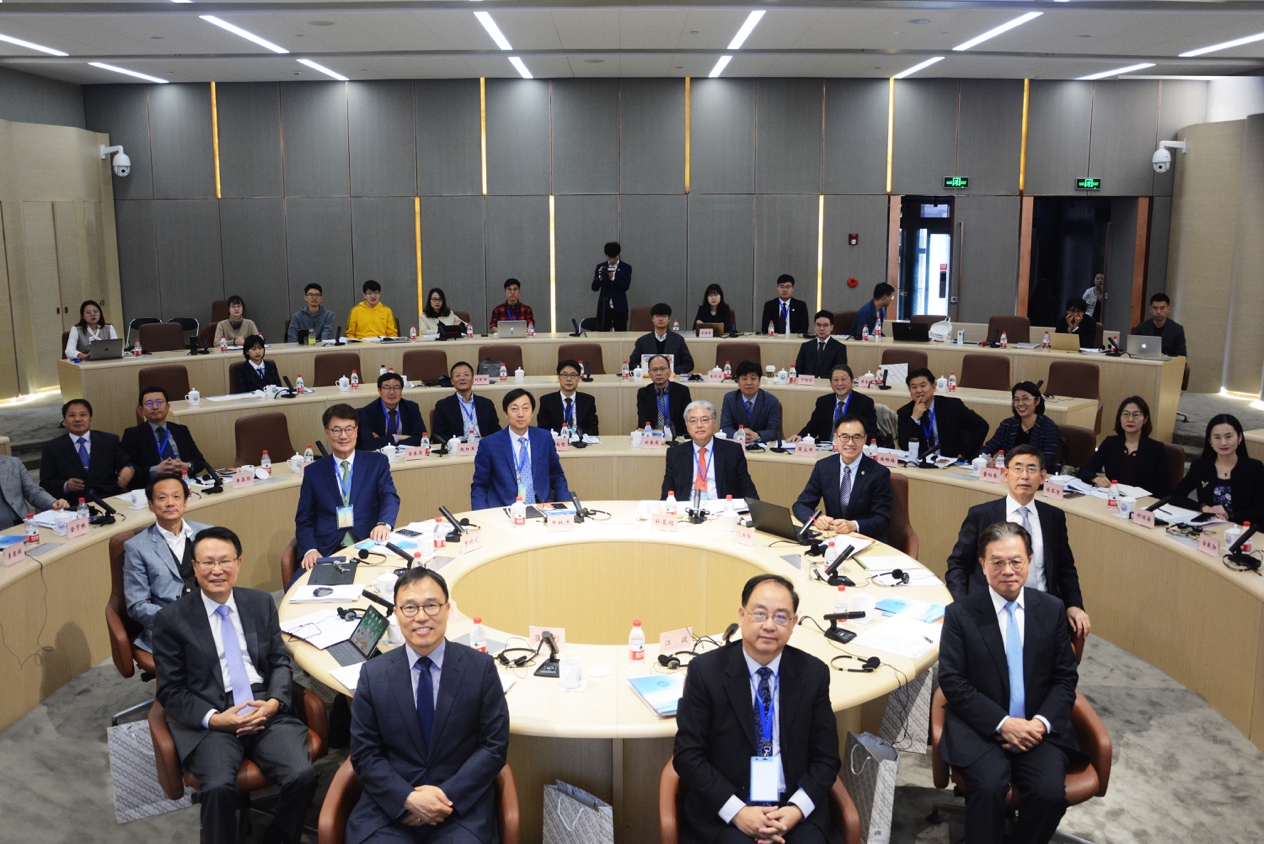
The opening ceremony was moderated by Tongji Distinguished Professor Men Honghua, President of the Institute for China & World Studies and Dean of the School of Political Science & International Relations, Tongji University. Vice President Jiang Bo, Prof. Cho Jeoung-seong, Vice President and Special Advisor to the President of DSU, and Consul-General Choi addressed the ceremony.
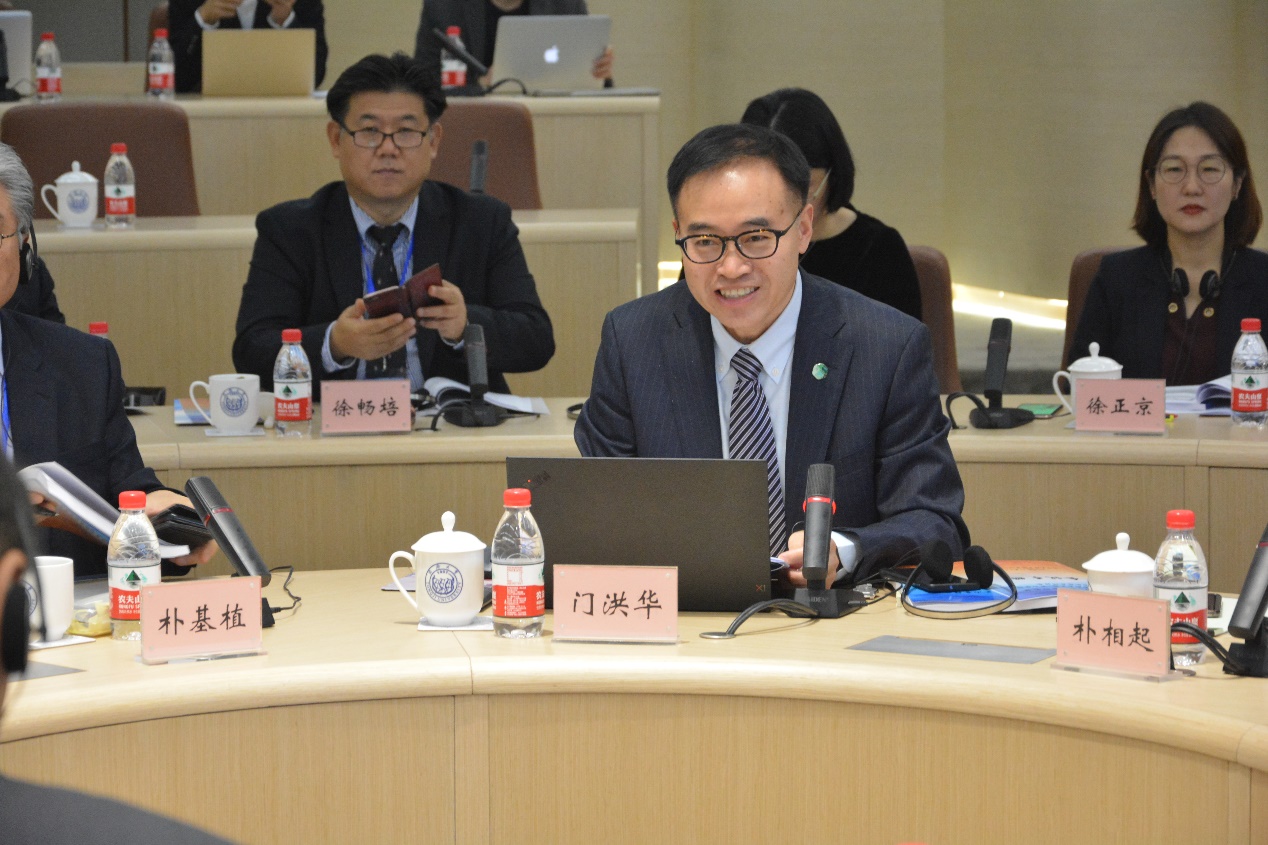
In his speech, Vice President Jiang pointed out that the Shanghai-Busan Cooperation Forum jointly initiated by Ambassador Shin and Dean Men has become an important academic platform for Asia-Pacific studies. When the world is now facing profound changes unseen in a century, there is an urgent need for Northeast Asian countries to tap the potential for cooperation to jointly make positive contributions to regional peace and stability. In particular, China and South Korea should enhance mutual political trust, expand economic cooperation, deepen converging interests, and consolidate people-to-people exchanges, in order to tackle together a series of challenges in the future.
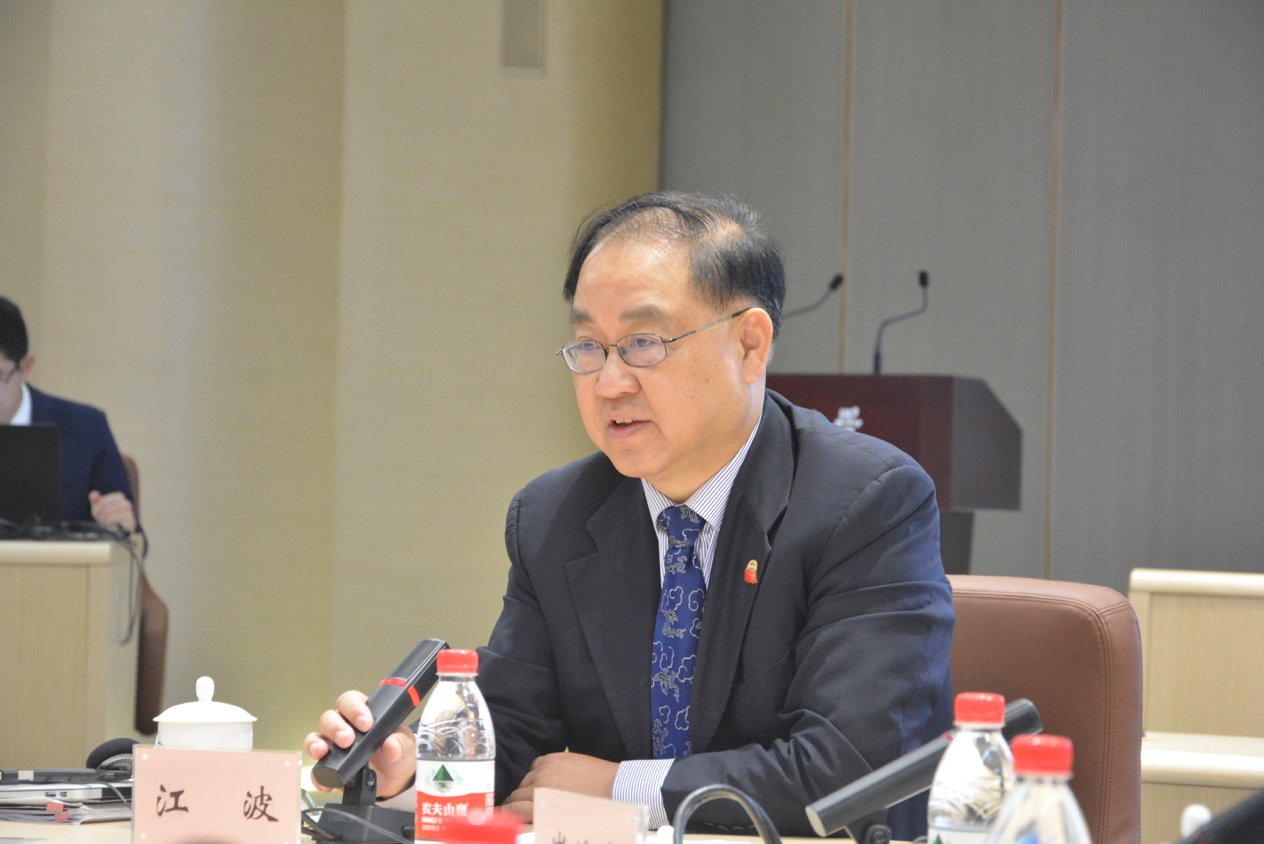
Consul-General Choi recognized the great significance of the 4th forum. When the international situation including that in Northeast Asia is entering a complicated period, experts from both sides were invited to discuss how to eliminate conflicts and uncertainties in the region and how to promote regional cooperation, which is of great realistic significance. The year 2019 marked the 70th anniversary of the founding of the People’s Republic of China, as well as the 100th anniversary of the founding of the Provisional Government of the Republic of Korea. This forum is expected to push the two neighbors to review their common historical experience and help promote the further healthy development of bilateral relations. It is also meaningful for China and South Korea to pursue quality development in the future. He looked forward to insightful discussion on bilateral cooperation in culture, tourism and other sectors to promote positive exchanges and cooperation.
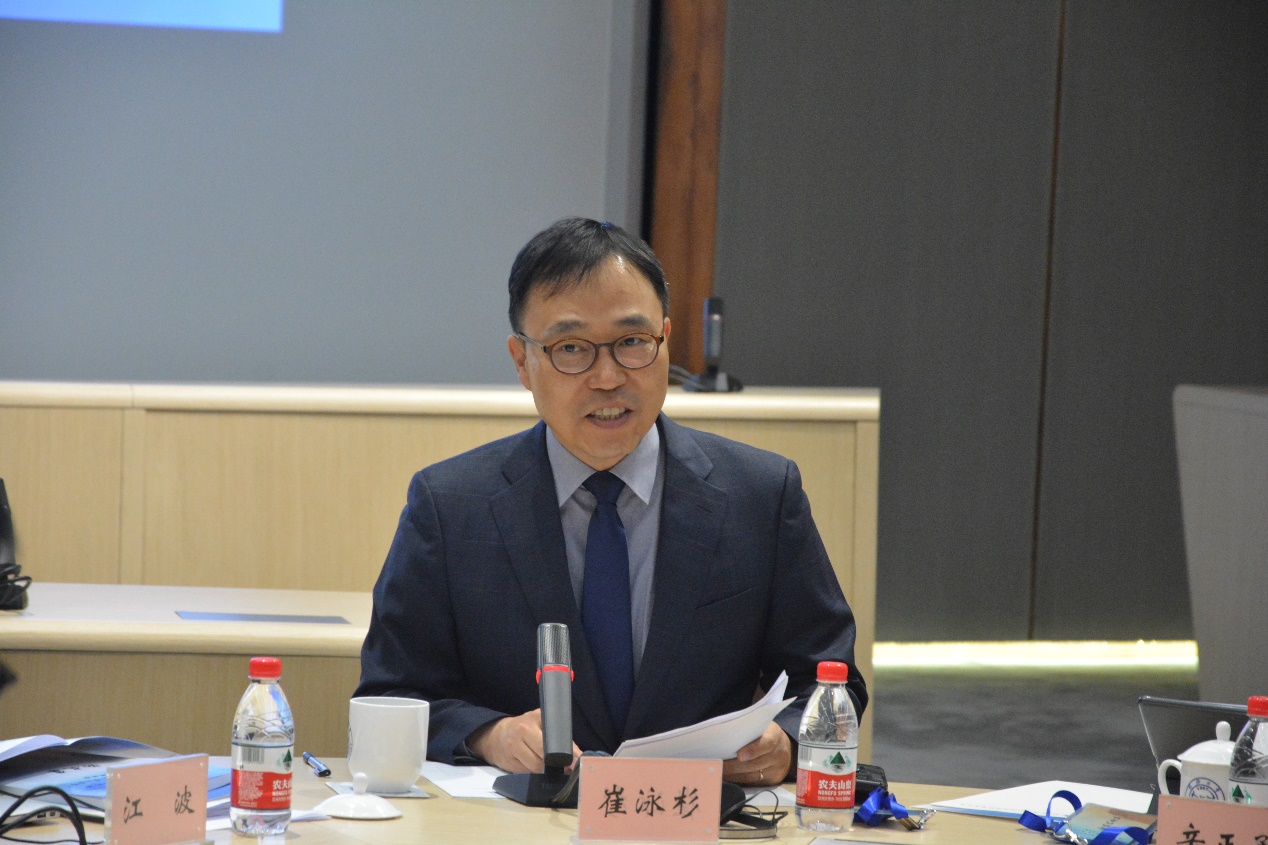
In the next keynote speech session moderated by Dean Men, former ambassadors Shin and Ning delivered important speeches in turn.
Shin focused on analyzing the future development direction of China-US relations and China-ROK relations. He believed that the continuous strategic competition between China and the United States will have a major impact on the security and economy in East Asia. South Korea must play its role as a balancer and mediator in the US-ROK alliance and China-ROK strategic partnership. He hoped that China and South Korea will continue to strengthen strategic communication and exchanges, smartly overcome the common challenges, actively develop bilateral relations, and continue to expand friendly cooperation on environmental protection and the fourth industrial revolution. He indicated that this forum can explore the possibilities of economic and cultural cooperation to make positive contributions to the friendly cooperation between the sister cities and even the two countries.
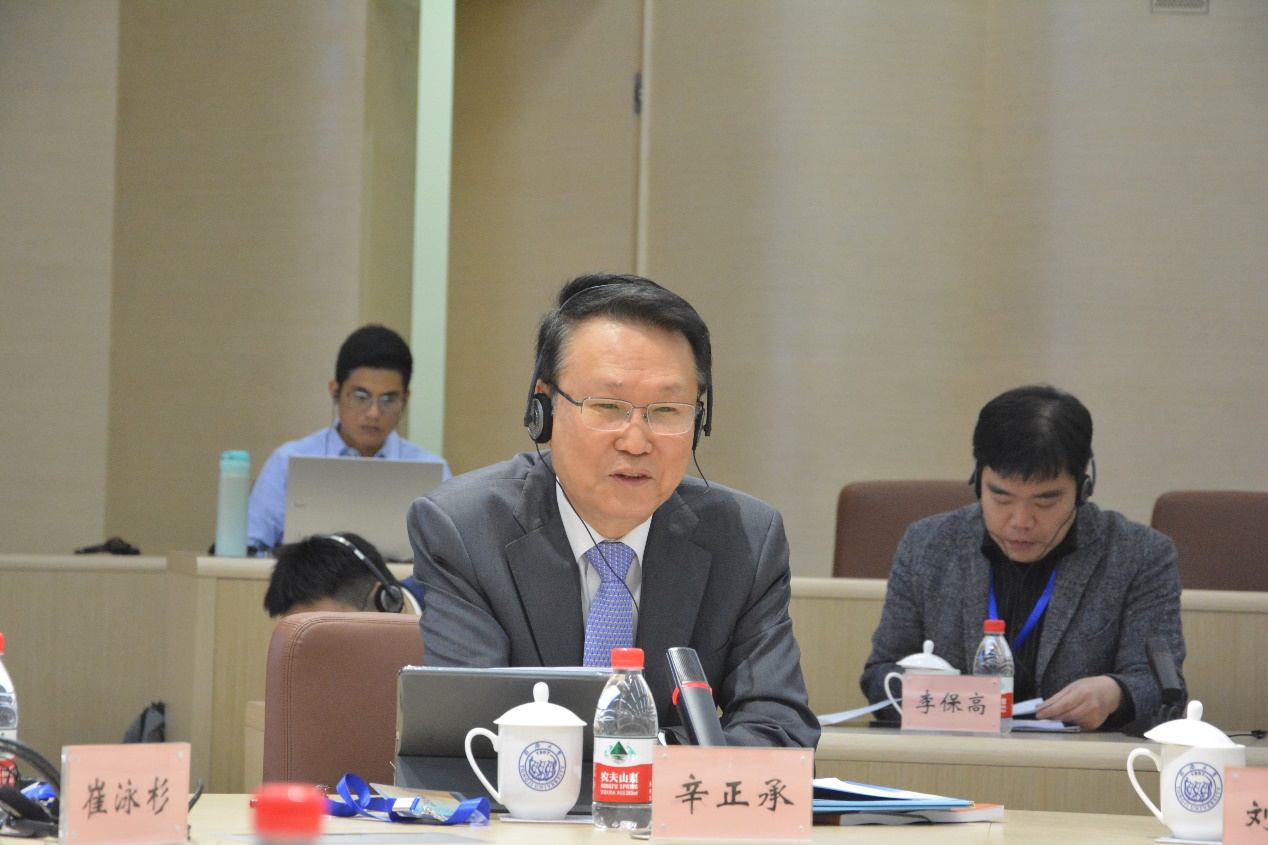
Ning revisited China-ROK relations from the perspective of East Asian cooperation. He pointed out that a higher level of China-ROK relations requires more political mutual trust between the two countries and a virtuous circle of “interaction - mutual trust - interaction”. China and South Korea may be competitors in some areas, but there is still complementarity in economic and trade cooperation. It is hoped that the two countries may cooperate in high technology, digital economy, artificial intelligence, smart cities, finance, and modern services, and accelerate the negotiations on FTA upgrade to create better conditions for cooperation on trade in service and financial investment. The two sides may study how to align China’s Belt and Road Initiative with South Korea’s development strategy, explore more substantive measures, and look for new growth points for cooperation. He proposed the approach of cooperation via the third party. Besides, closer people-to-people ties are very important. Efforts should be made to advance people-to-people exchanges, and deepen the emotional and spiritual communication between the two peoples, thus making the development of China-ROK cooperation a common aspiration of the two peoples.
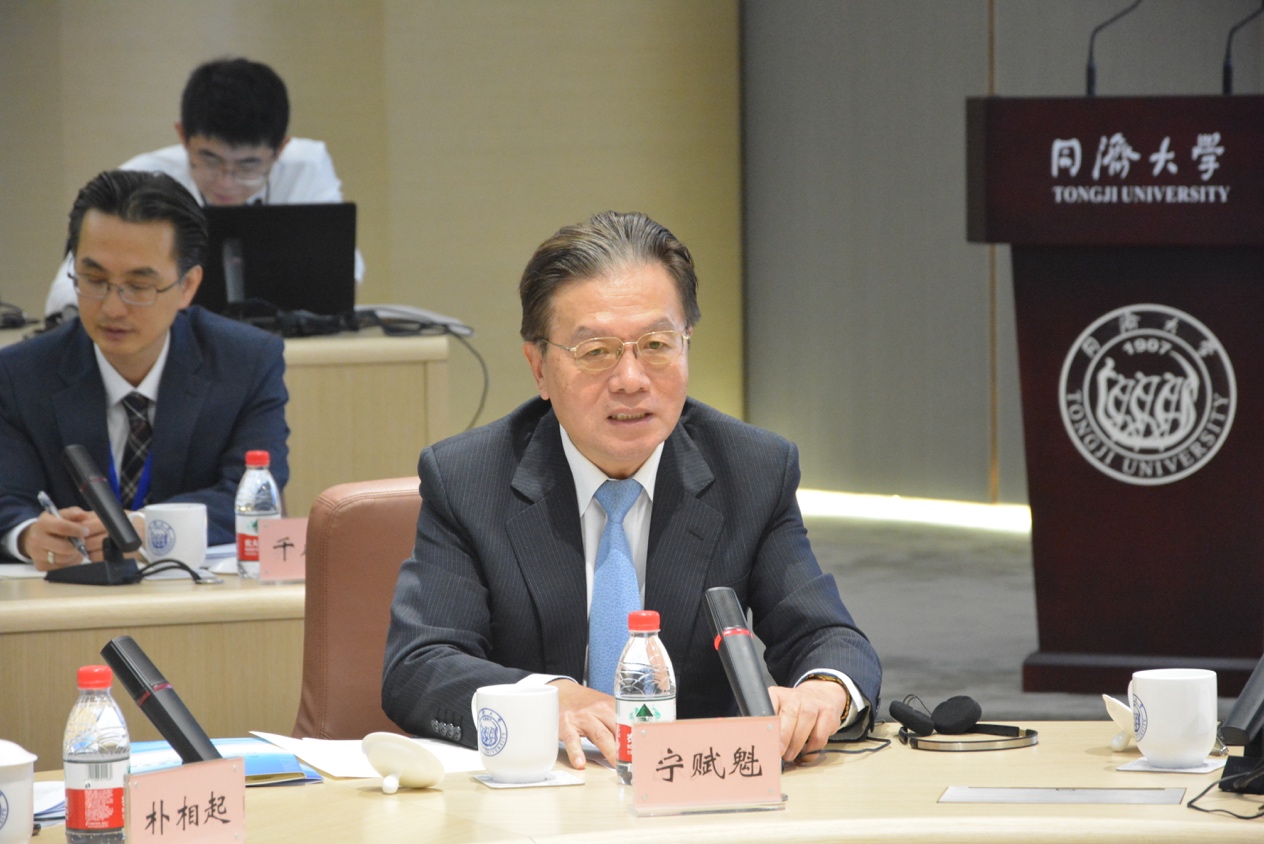
The first session themed “New Developments in Security and Diplomacy in Northeast Asia” was moderated by Prof. Zheng Chunrong, Associate Dean of SPSIR.
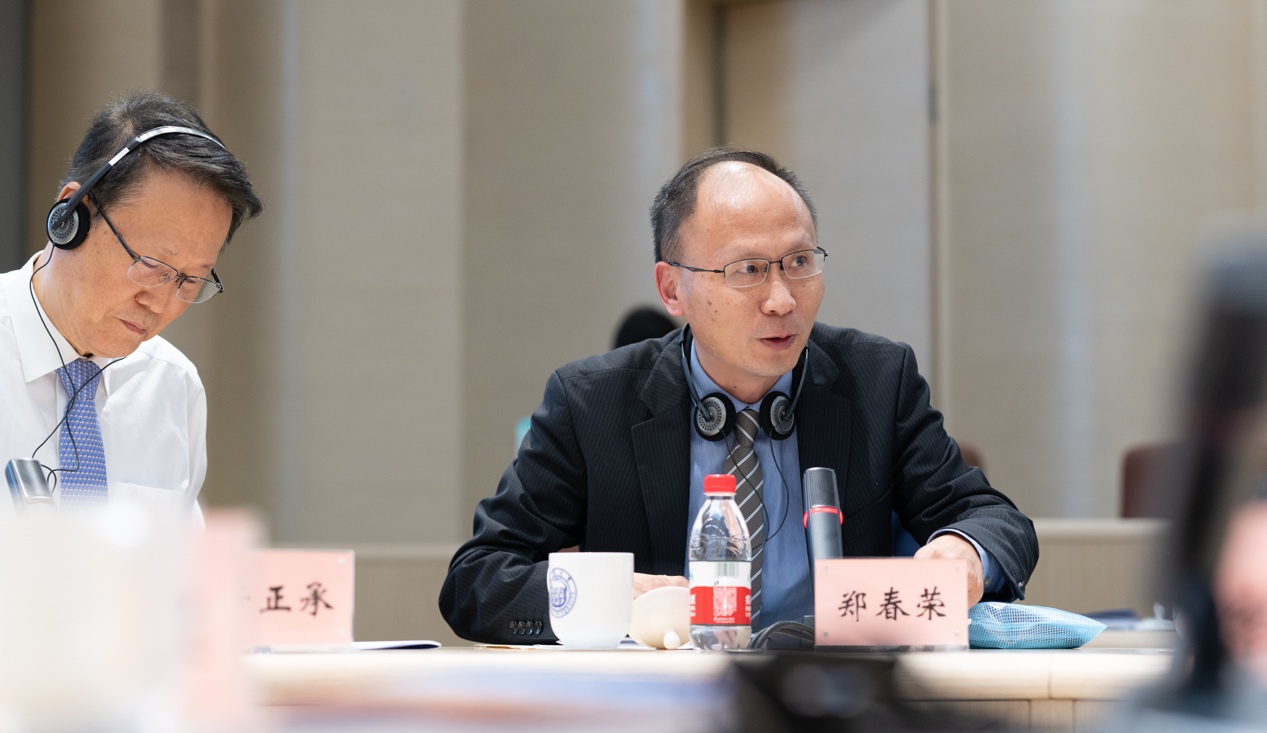
In her speech entitled “Prospects of China-US Relations in the Context of International Relations Theory”, Seo Jeong-kyung, a member of PCNEC, said that both China and the United States attach great importance to soft power. On a global scale, China is working hard to improve its national image and build its discourse system. Since China and the US have different histories and values in terms of norms and cultures, it is not easy to maintain peace.
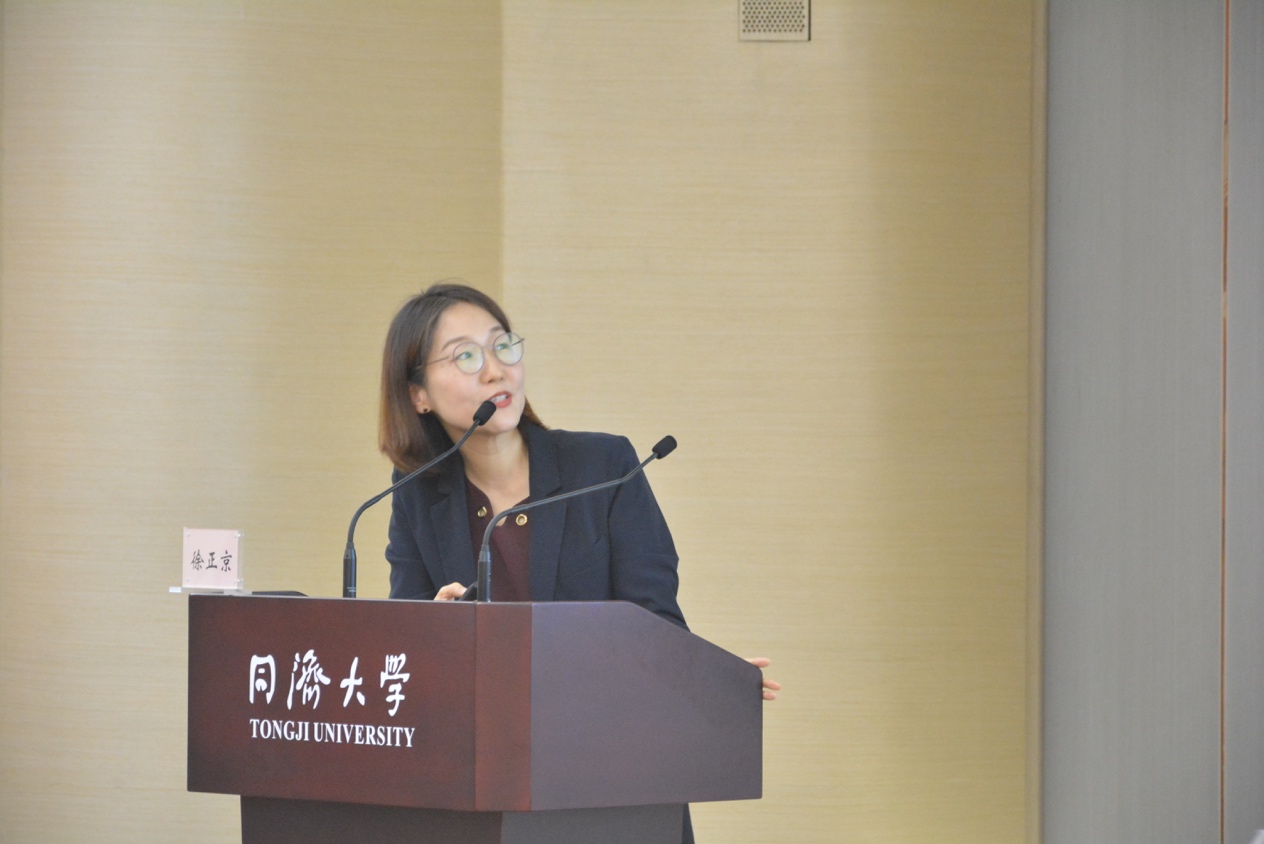
In his speech entitled “China-US Relations and the Situation in Northeast Asia”, Xia Liping, a professor at Tongji, said that although China-US relations have to go through a period of fierce competition, the two sides will inevitably join hands in some areas and ultimately pursue co-opetition for common evolution.
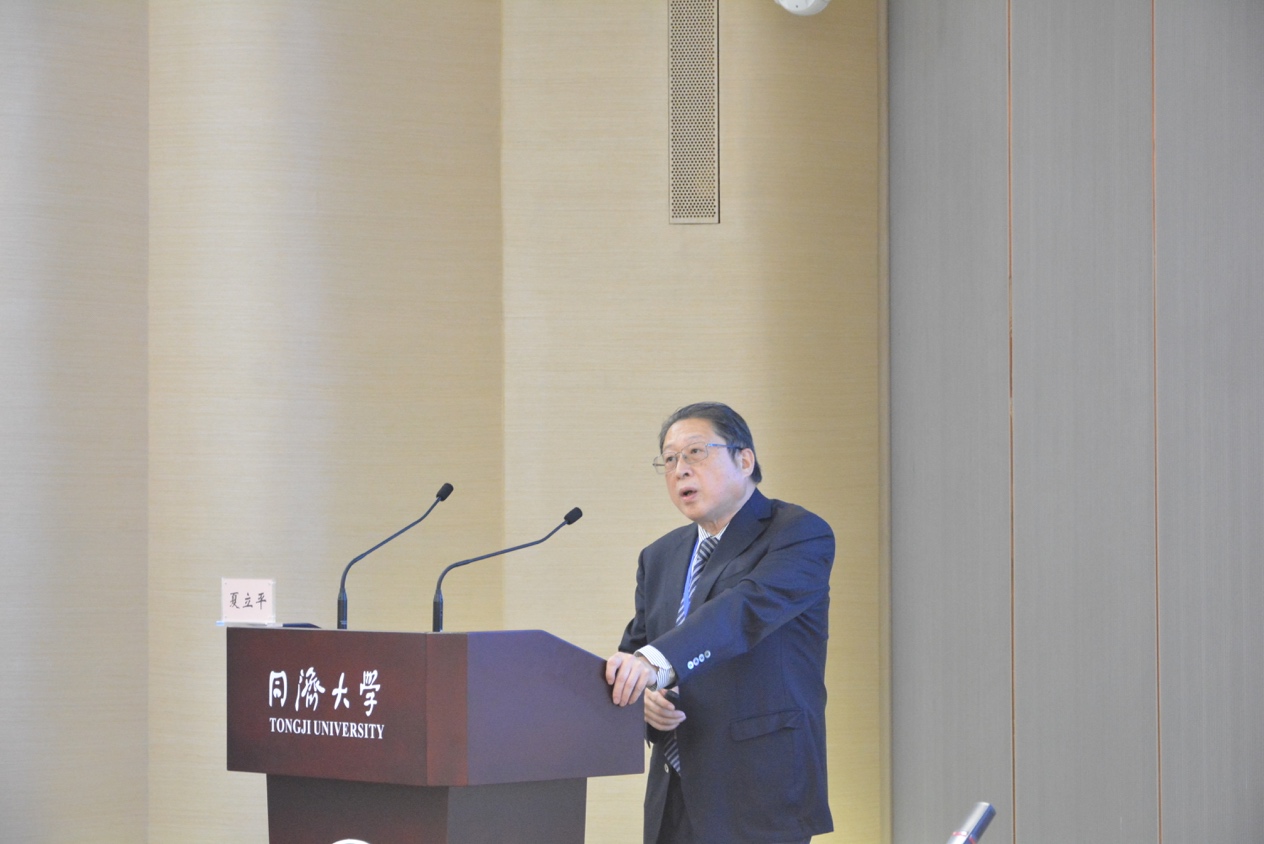
Liu Ming, a research fellow at the Institute of International Relations, SASS, mainly discussed the assessment of progress in the denuclearization talks between the US and North Korea and the direction of North Korea policy. He believed that the US and North Korea are likely to reach a provisional agreement in some areas, but the relations between North Korea and South Korea are unlikely to get much improved. China’s role depends not only on the development of China-North Korea relations and China-US relations, but also on how South Korea handles its relations with China.
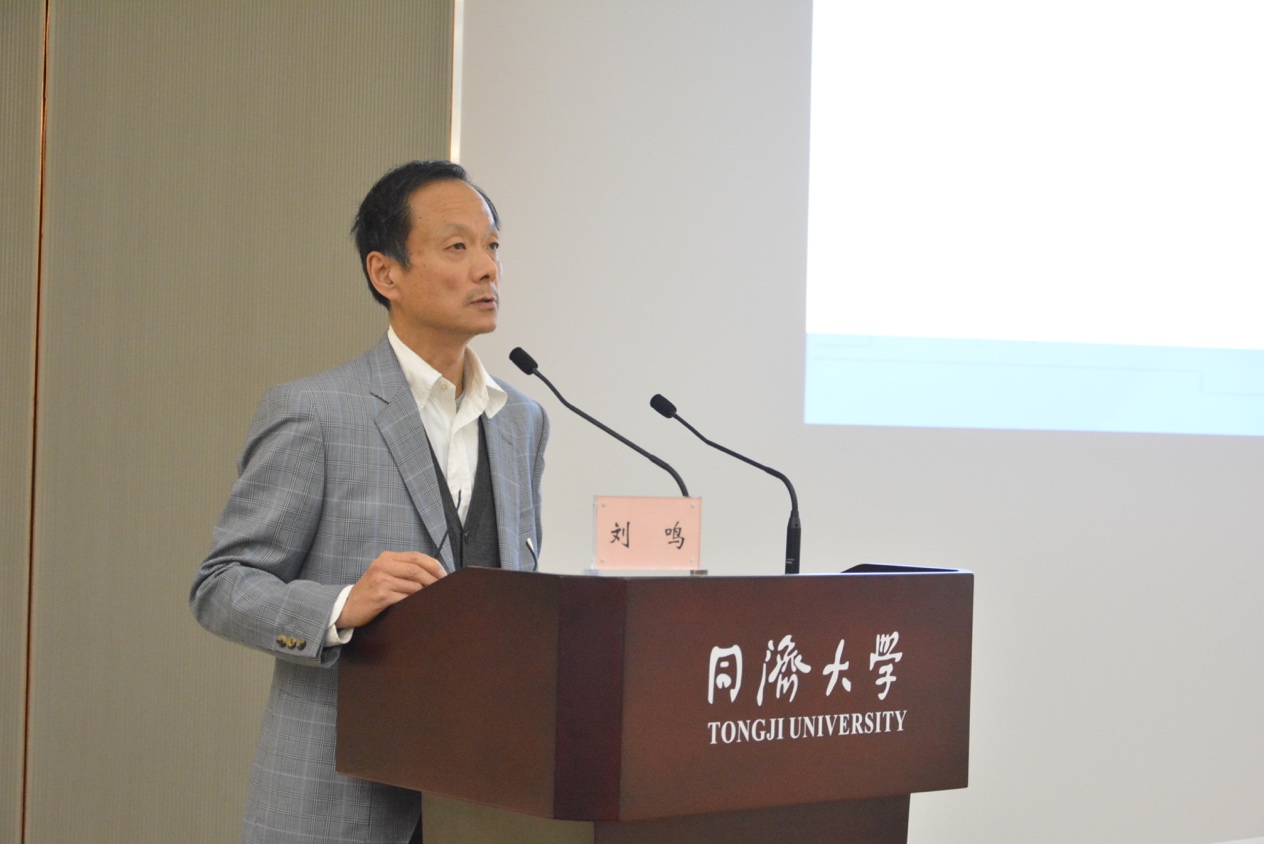
Associate Professor Li Chunfu, Deputy Director of the Center for South Korean Studies at Nankai University, discussed why the situation in Korean Peninsula is still grim after the ice-breaking trip, and how to view the current security situation on the Peninsula.
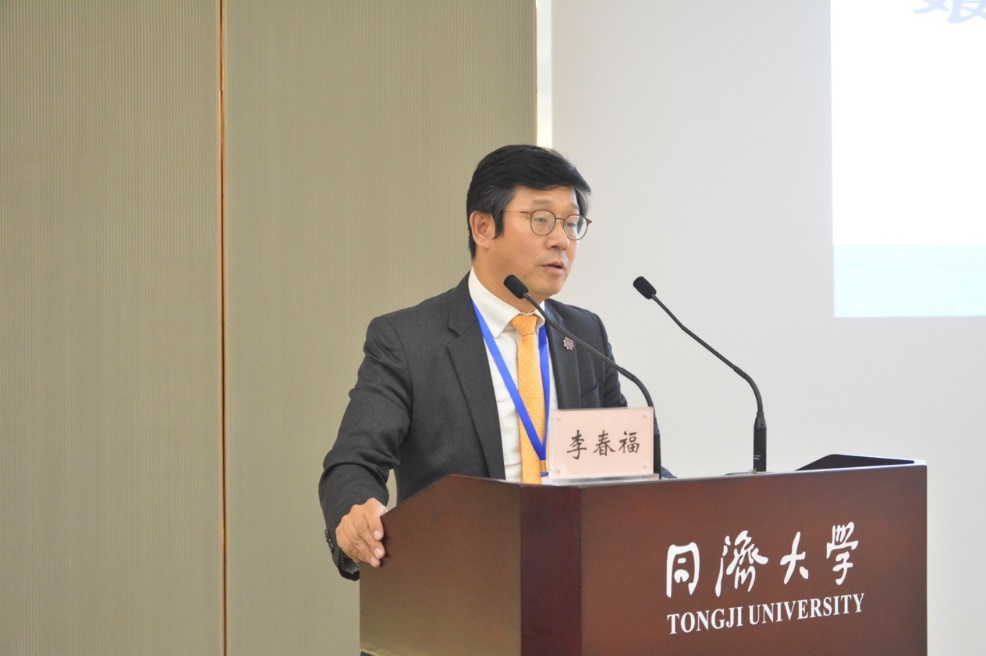
In the comment session, Prof. Niu Linjie, Dean of the School of Korean Studies at Shandong University, put forward the following suggestions on China-ROK relations: The Chinese and South Korean governments and academia should strengthen research on the China-ROK strategic partnership in the new era, enrich the content of the partnership, and make clear the general direction of China-ROK relations; as well as enhance the cooperative research and people-to-people exchanges on the East Asian civilizations and cultures. Prof. Cha Chang-hoon from Pusan National University believed that we should find a brand-new solution to achieve peace and prosperity in Northeast Asia.
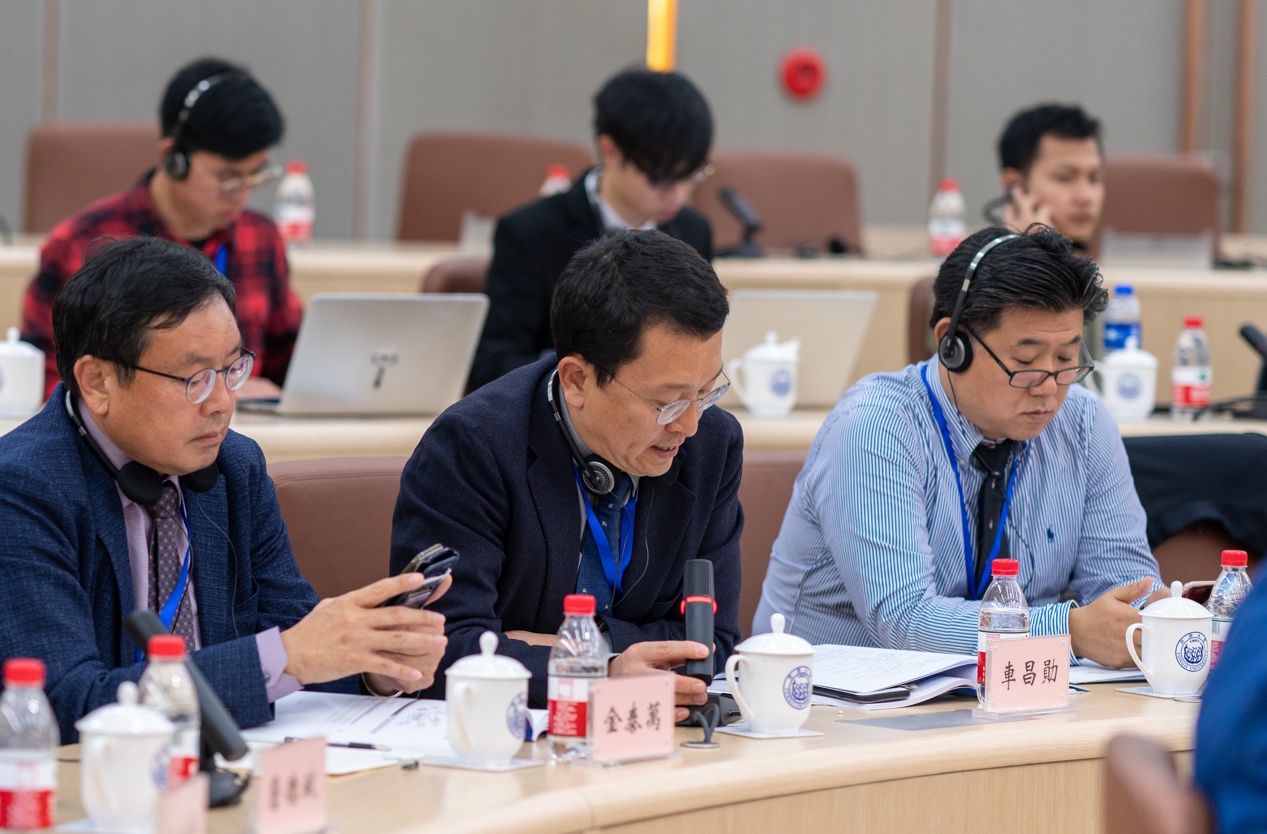
Prof. Lee Hong-gyoo, Director of the Center for Chinese Studies, DSU, moderated the second session themed “Economic Cooperation in Northeast Asia and China-ROK Relations”.
Dong Xiangrong, a research fellow at the National Institute of International Strategy, the Chinese Academy of Social Sciences (NIIS CASS), discussed the key points and pain points of regional economic cooperation in Northeast Asia. Since Northeast Asia lacks a region-wide multilateral mechanism for economic cooperation, major countries are playing a key role in the regional cooperation, he believed.
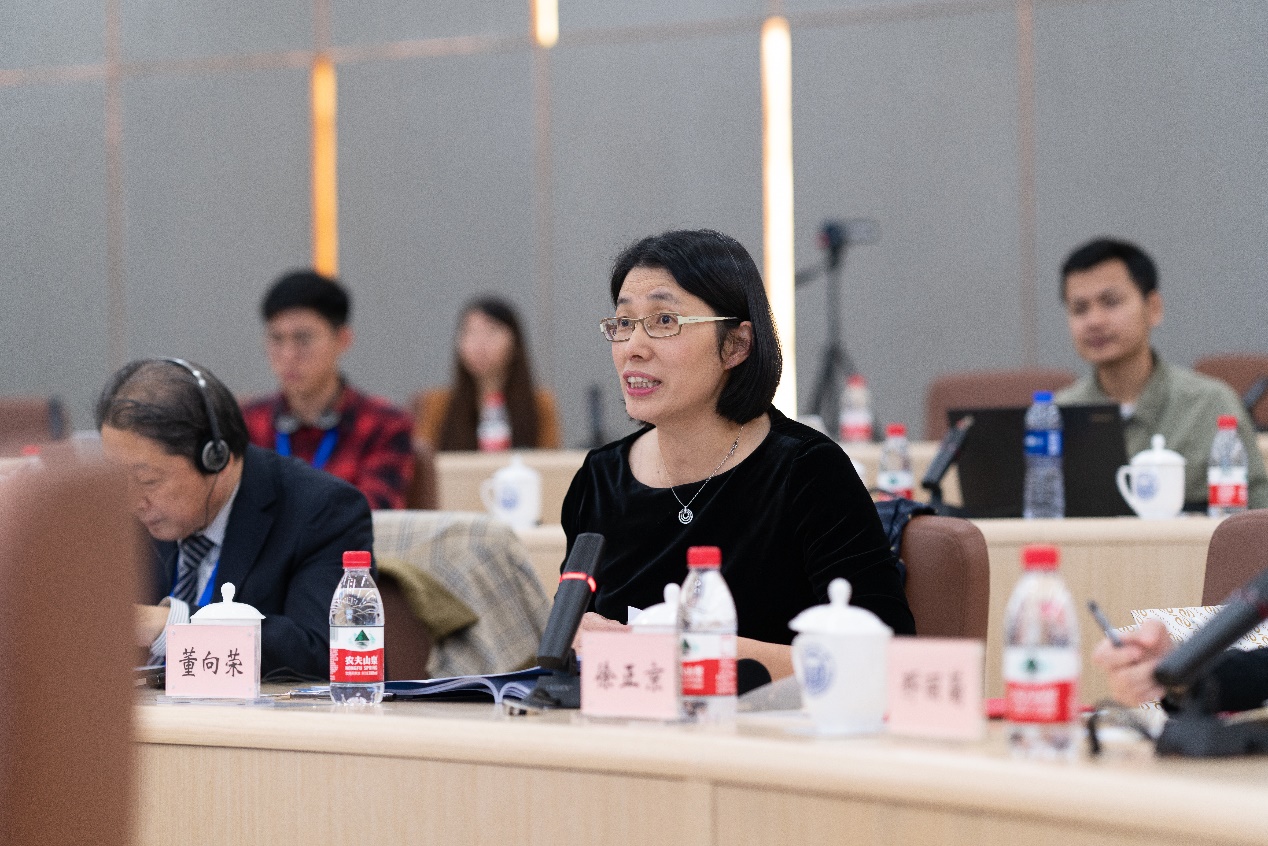
Seo Chang-bae, a professor at Pukyung National University, discussed the expansion of inter-city economic cooperation and analyzed the economic difficulties in Northeast Asia. As China-ROK relations are entering the 3.0 era, the two countries should focus more on promoting local cooperation and exchanges.
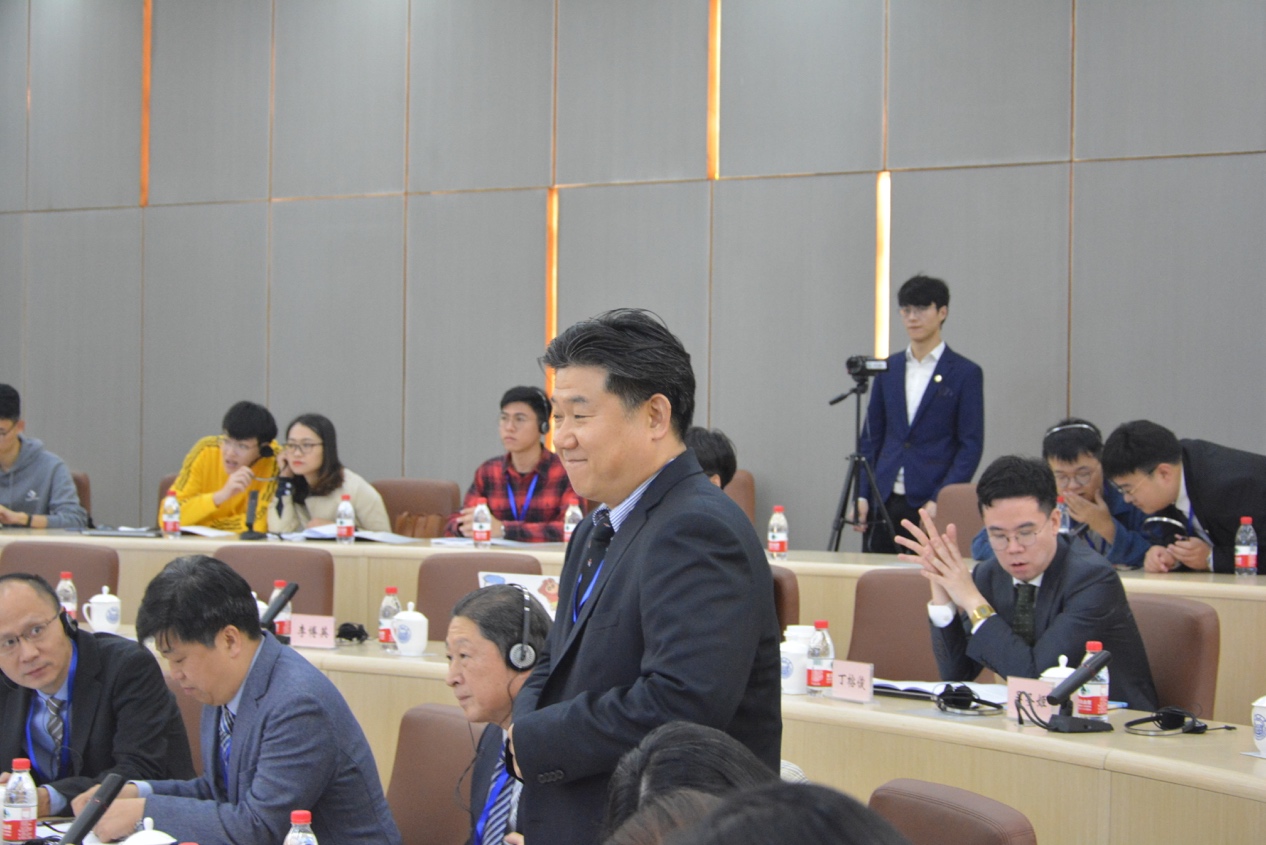
He Xiyou, an associate professor at the School of Economics of Fudan University, explored the role and prospects of China-ROK industrial parks. In the new era of China-ROK economic relations, the Korean industrial parks in China have evolved from Korean industrial parks to China-ROK industrial parks. Given a stronger foundation for the emerging industrial parks, there is a great potential for complementary and mutually beneficial cooperation.
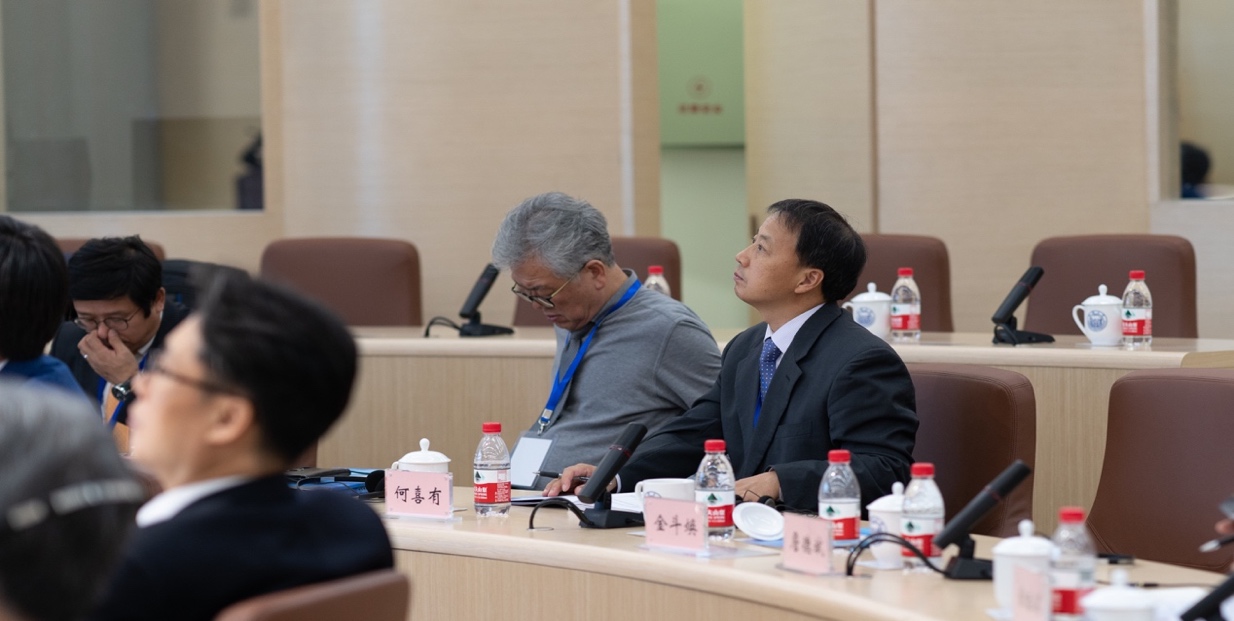
Prof. Zhao Hongjun, Vice Dean of the School of Finance and Business at Shanghai Normal University, analyzed how the US can influence the economic and trade relations in Northeast Asia, believing that the highly complementary China-ROK trade will not be interfered by the US from outside the region.
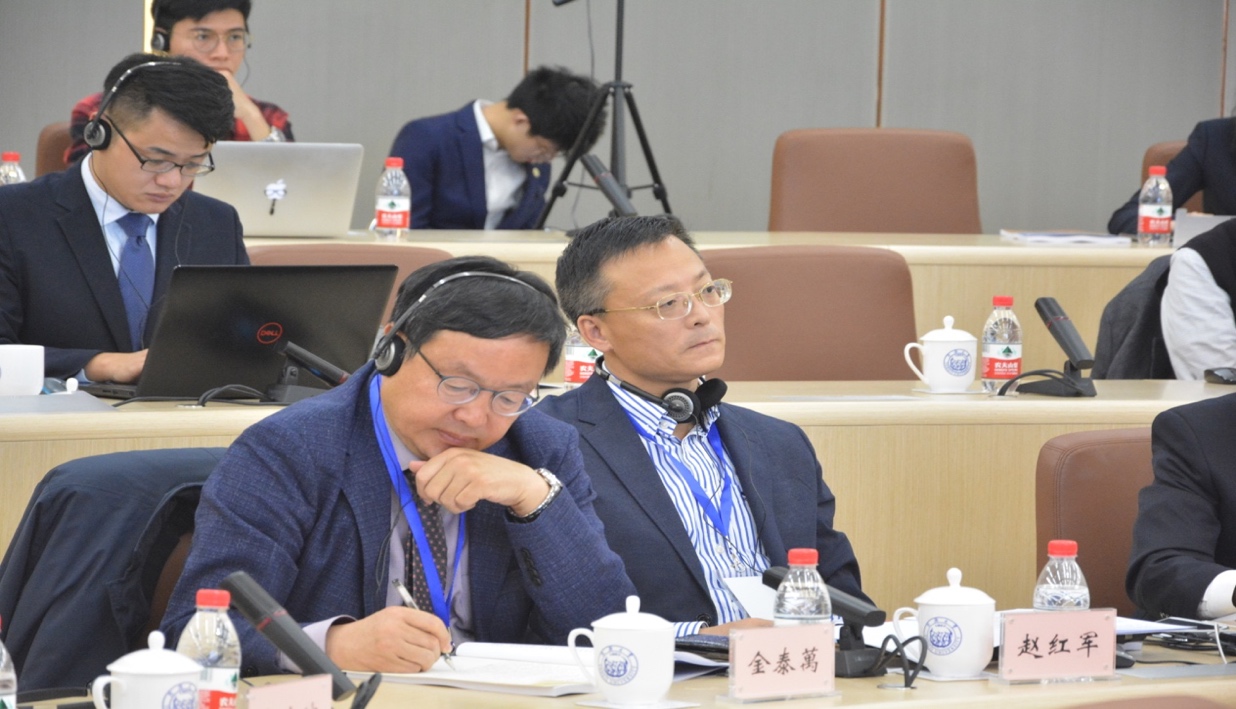
In the comment session, Park Jae-jin, a professor at DSU, analyzed the future development direction of China-ROK trade relations based on the above speeches. SASS research fellow Liu Ming expected Korean companies to act more proactively now that there is huge potential for China-ROK economic cooperation.
Moderated by Tongji Prof. Xia Liping, the third session explored the theme of “Shanghai-Busan Cooperation and China-ROK Relations”.
Kim Hyoung-geun, a research fellow at KMI, started with Shanghai’s logistics policy trends to discuss the Busan-Shanghai cooperation program. In his view, the two coastal cities of Busan and Shanghai can work together to build economic cooperation parks, explore joint investment projects, expand e-commerce transactions, and build a platform for mutual benefit.

Dr. Li Boying, an assistant professor at Tongji University, analyzed the trade between China and South Korea. She pointed out that the effective implementation of the China-ROK Free Trade Agreement will provide a stable and relaxed policy environment and broader market space for the economic development of both countries; a strong complementarity in industrial structure has laid a very solid foundation for further economic cooperation; and the transformation of the industrial structure in both countries will boost continuous upgrading of the trade structure.

Dr. Chung Young-june, an assistant professor at Tongji University, introduced China’s policy stance on the peace process on the Korean Peninsula after the Pyeongchang Winter Olympics. He pointed out that “constructive role” is a frequently used phrase in international cooperation, showing China’s sense of responsibility as a major country. He believed that China is not interested in playing the role of arbitrator. China and South Korea have a quite similar goal toward denuclearization, so the two countries should maintain close contact on establishing a peace mechanism and declaring the end of war.
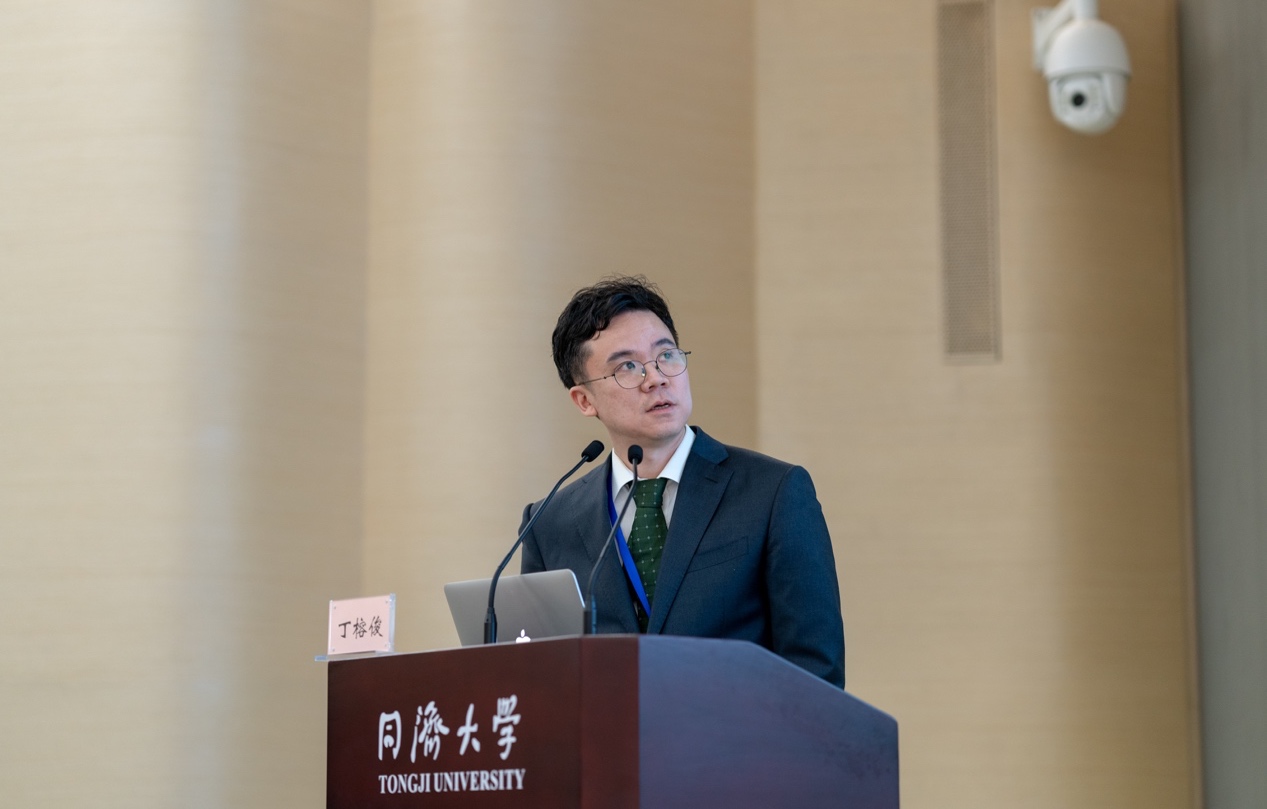
In the comment session, Park Sang-ki, former Ambassador at the Consulate General of the ROK in Shanghai, pointed out that as the WTO multilateral trading system is facing an existential crisis, China and South Korea must work hard to maintain the existing multilateral trading system and upgrade cooperation in the field of the fourth industrial revolution. South Korea should align its development strategy with China’s Belt and Road Initiative so that the two countries can achieve a win-win result.
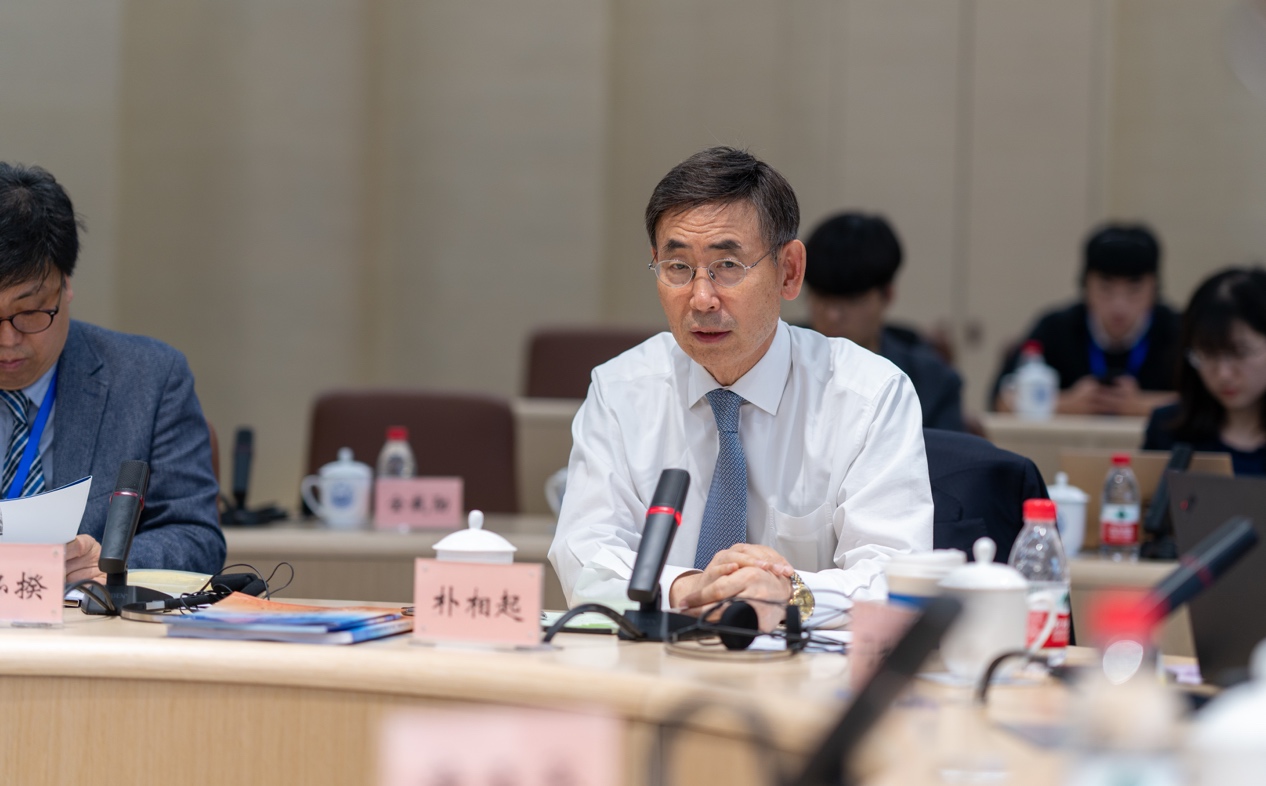
Moderated by Cha Chang-hoon, a professor at PNU, the fourth session explored the theme of “China-ROK People-to-People Exchanges and the Future of Northeast Asia”.
Prof. Niu Linjie, Dean of the School of Korean Studies at Shandong University, analyzed the Korean literature education and research in China since the establishment of China-ROK diplomatic relations. He pointed out that the opening of Korean language department all over China has promoted the development of Korean language teaching materials and related literary works. And China’s fruitful research results on Korean literature and humanities have helped enrich the understanding of East Asian culture.
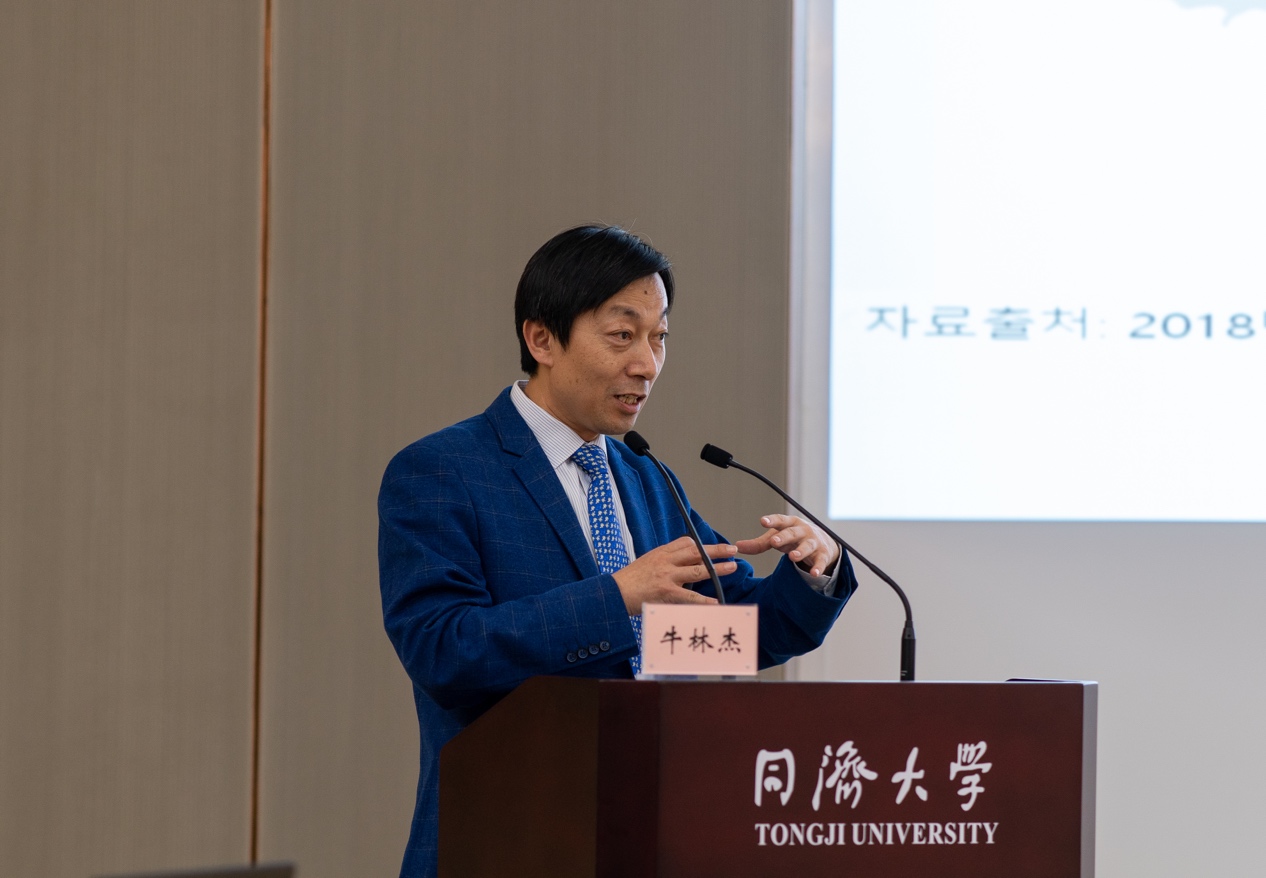
Lee Bo-go, a professor at Pukyong National University, took national universities in the Busan region as an example to introduce the current situation of humanities education for international students in Busan. He said that universities should not blindly seek to admit more international students, but should think more about how to improve the level of education.

Prof. Xing Liju, Deputy Director of the Center for Korean Studies at Fudan University, analyzed the cultural exchanges between China and South Korea from historical and realistic perspectives. She believed that people-to-people exchanges have become the third pillar of the major country diplomacy with Chinese characteristics. Despite some setbacks in recent years, China and South Korea must build mutual trust, and establish a sound mechanism platform for people-to-people exchanges.
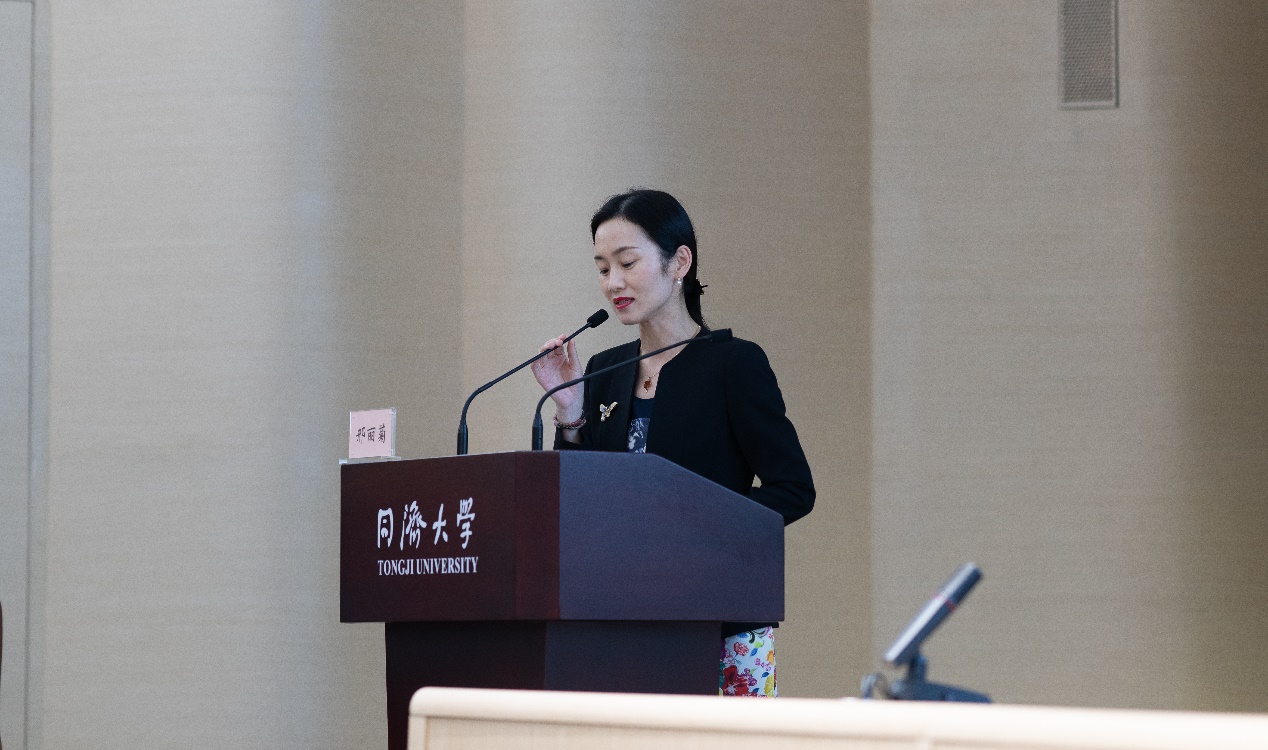
Sun Heyun, an associate professor at the School of International Studies, CUC, analyzed the communication of Chinese modern and contemporary literature in South Korea and related problems and policies. In her opinion, Chinese literary circle needs to positively respond to popular themes in the market, build an individualized translation model, and shape an all-in-one communication model.
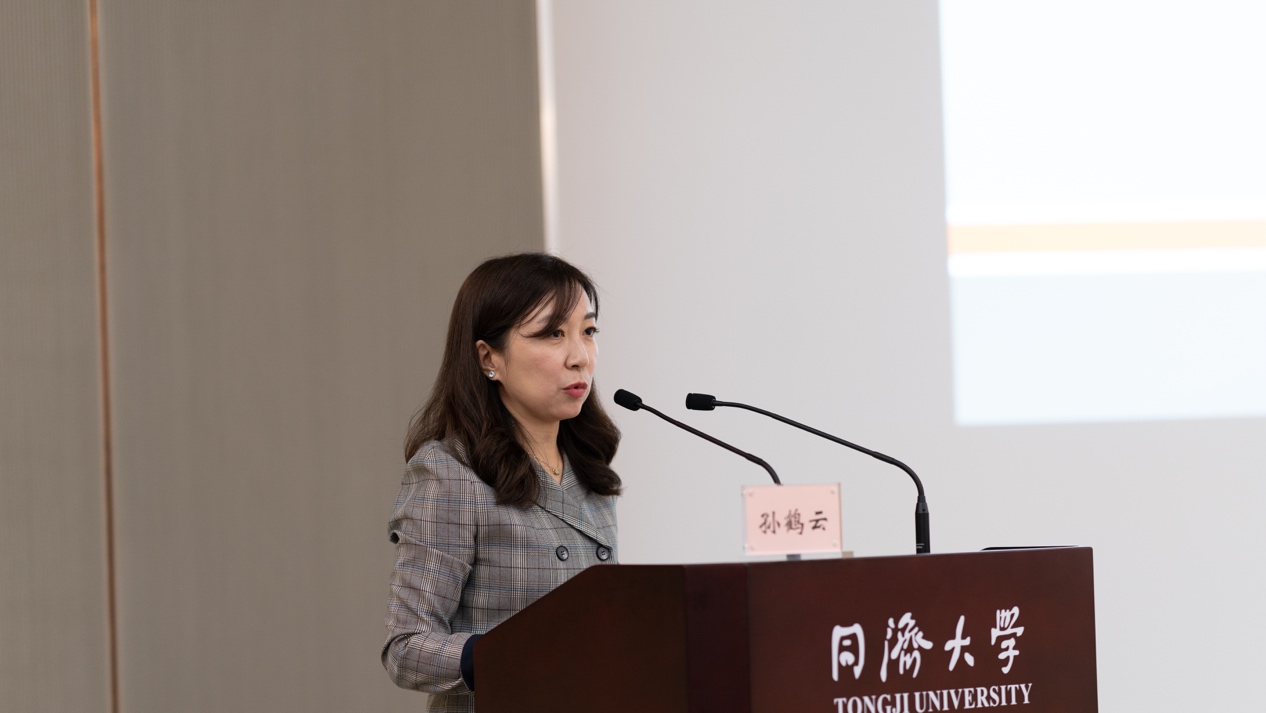
Then, Kim Tae-man, a professor at KMOU, commented that since the establishment of diplomatic relations between China and South Korea 27 years ago, the two sides have been carrying out more and more exchanges in diverse areas, but the road of exchanges remains bumpy.
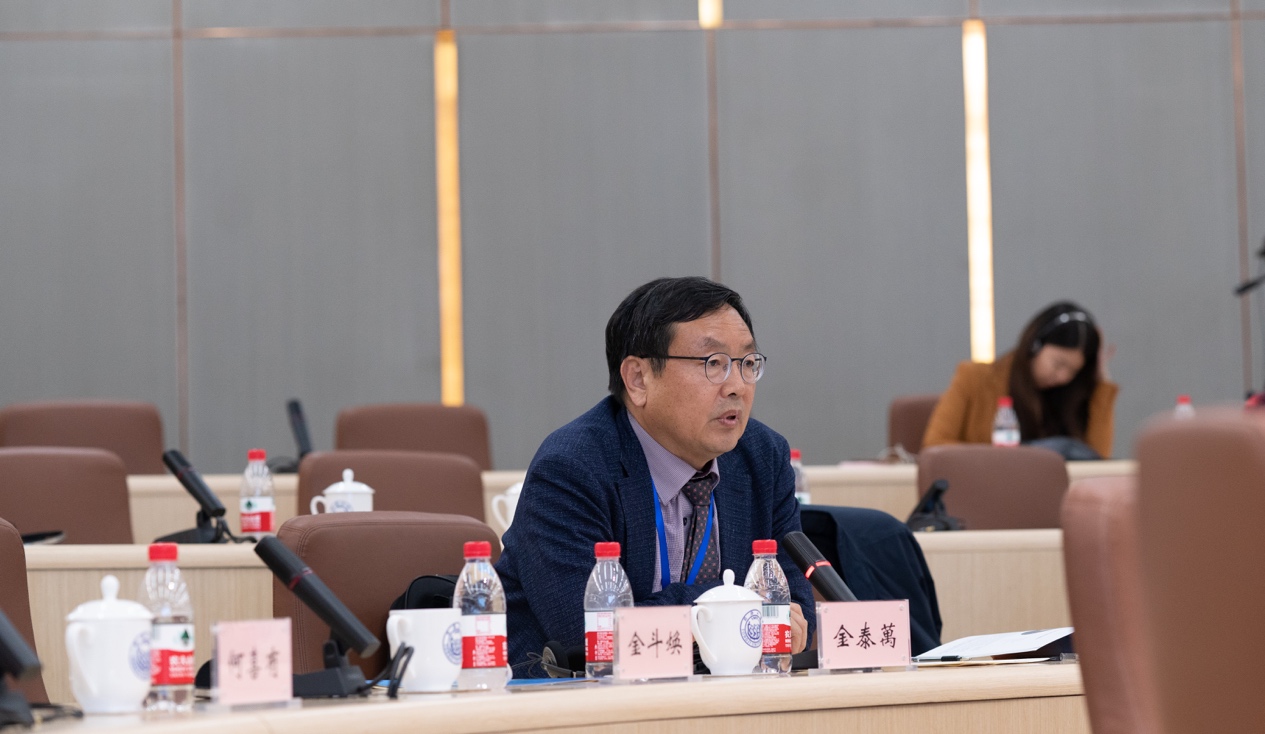
Zhong Zhenming, an associate professor and assistant to the dean at SPSIR, pointed out that deepen the people-to-people exchanges and cooperation between China and South Korea, coping with the challenges to such exchanges, and properly handling differences are very important to promote the healthy development of China-ROK relations.
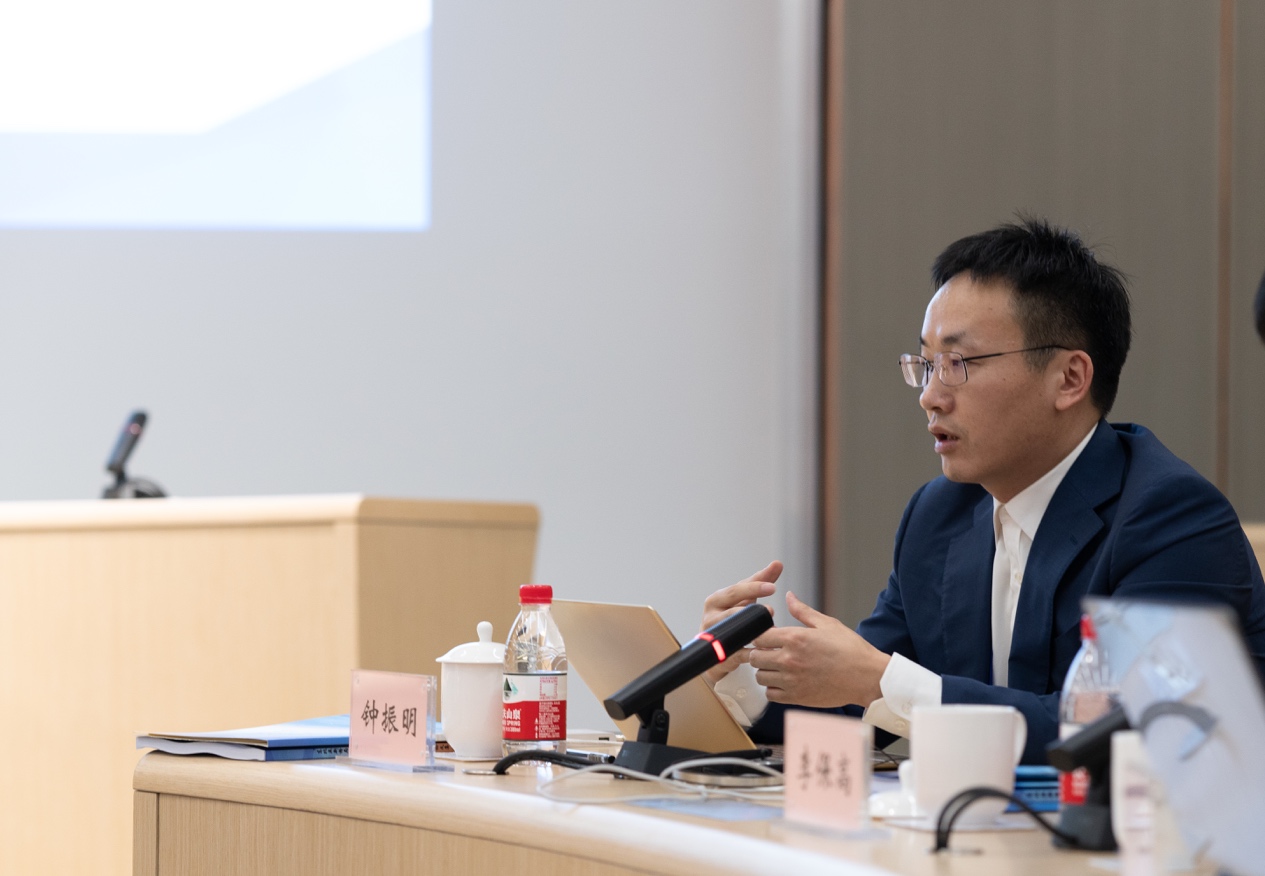
Finally, Prof. Zheng Chunrong moderated the closing ceremony, where Ambassador Shin and Dean Men respectively made a summary speech. Shin reaffirmed the importance of this forum, and believed that the two sides will have closer cooperation in the future, and the forum will also attract positive attention from both China and South Korea.
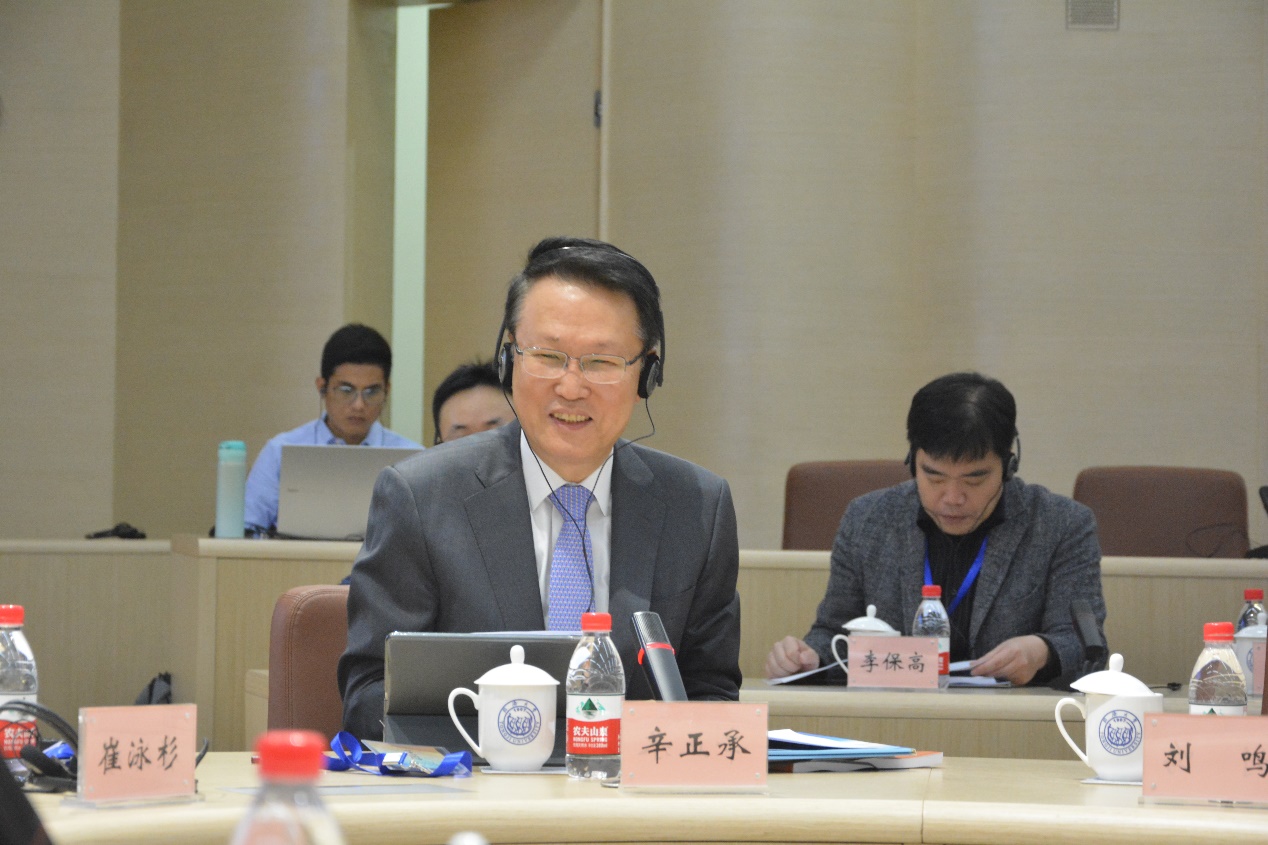
Dean Men concluded that this forum reviewed the development history of China-ROK relations, and also put forward forward-looking suggestions for the future. He expected for in-depth study on the progress in politics, security, economy and people-to-people exchanges as well as existing problems, which can offer high-level advice on deeper understanding and cooperation.
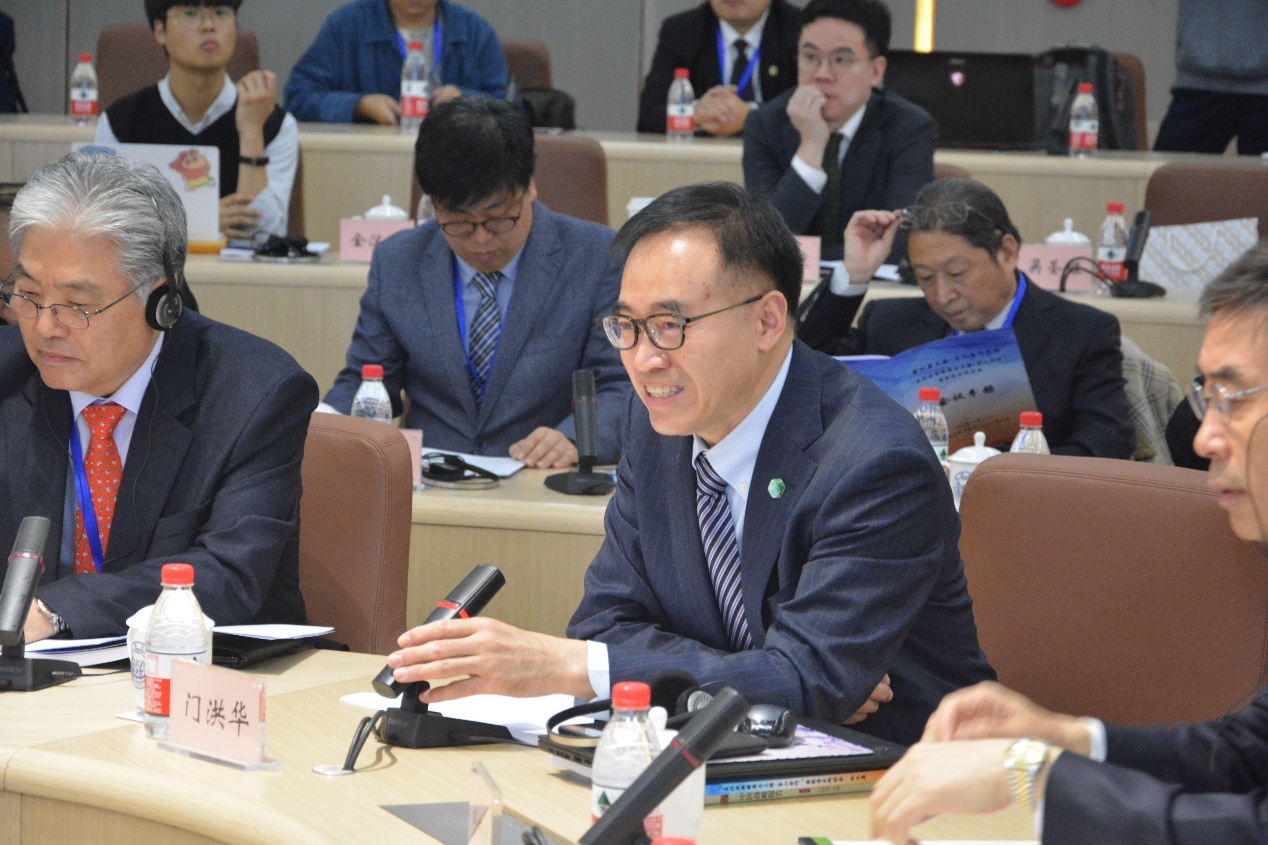
They jointly looked forward to building this forum into a pivotal platform for academic and policy exchanges between Shanghai and Busan, and between China and South Korea. Both parties will make careful preparations for the 5th forum to be held in Busan next year.




